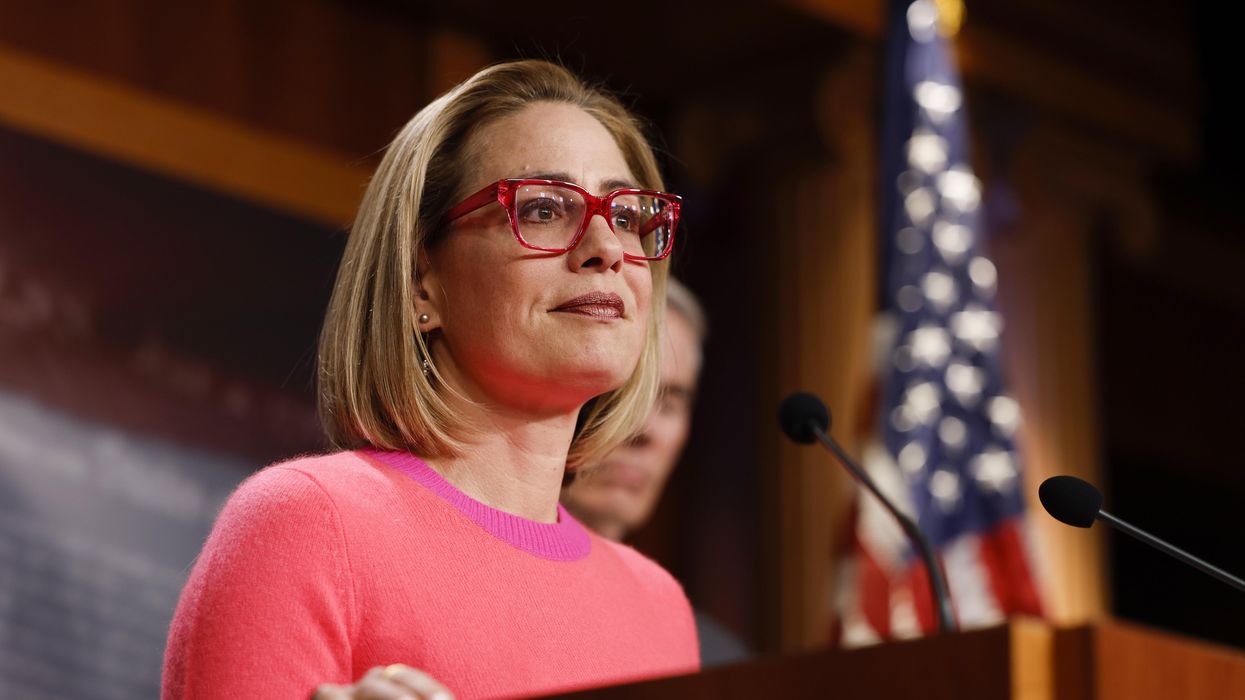Originally published by The 19th.
Sen. Kyrsten Sinema of Arizona said she’s leaving the Democratic Party and registering as an independent, which would make her the first independent woman senator in history.
“Like a lot of Arizonans, I have never fit perfectly in either national party,” Sinema wrote in an op-ed published in the Arizona Republic on Friday morning. “ Becoming an independent won’t change my work in the Senate; my service to Arizona remains the same.”
In total, 77 U.S. senators have been independent or registered with a third party. Sens. Bernie Sanders of Vermont and Senator Angus King of Maine are also registered independents. Both caucus with the Democratic Party, allowing them to serve on committees. Sinema currently serves on three Senate committees and chairs two subcommittees.
Sinema did not explicitly say in her op-ed or an accompanying video if she planned to still caucus with the Democratic Party. But she emphasized that she would continue to support reproductive rights, LGBTQ+ rights and efforts to lower health care costs.
“Arizonans who share my unwavering view that a woman’s health care decision should be between her, her doctor and her family should know that will always remain my position, as will my belief that LGBTQ Americans should not be denied any opportunity because of who they are or who they love,” she wrote. Sinema is the first out bisexual person elected to the US Senate.
She added that “for Arizonans who’ve supported my work to make health care more affordable and accessible, they should know I will continue that work.”
Sinema, elected in 2018, has wielded a significant amount of influence in a Senate that has been divided evenly between 50 Republicans and 50 Democrats for the first two years of President Joe Biden’s presidency. Democrats gained a one-seat Senate majority in the 2022 midterms. It’s unclear if or how Sinema’s decision will change that majority and the power it gives Democrats in the body.
Sinema played a key role in negotiating a major bipartisan infrastructure bill in 2021 a nd a bipartisan gun safety package this year.
But she’s also rankled progressives and angered the party’s left flank with some of her more moderate policy positions. Her support for the Senate’s filibuster rules and opposition to certain tax hikes sparked anger and open discussion from progressives about challenging her from the left in the Democratic primary when she’s up for reelection in 2024.
“I promised I would never bend to party pressure, and I would stay focused on solving problems and getting things done for everyday Arizonans,” Sinema wrote in her op-ed. “My approach is rare in Washington and has upset partisans in both parties. It is also an approach that has delivered lasting results for Arizona.”



















Trump & Hegseth gave Mark Kelly a huge 2028 gift